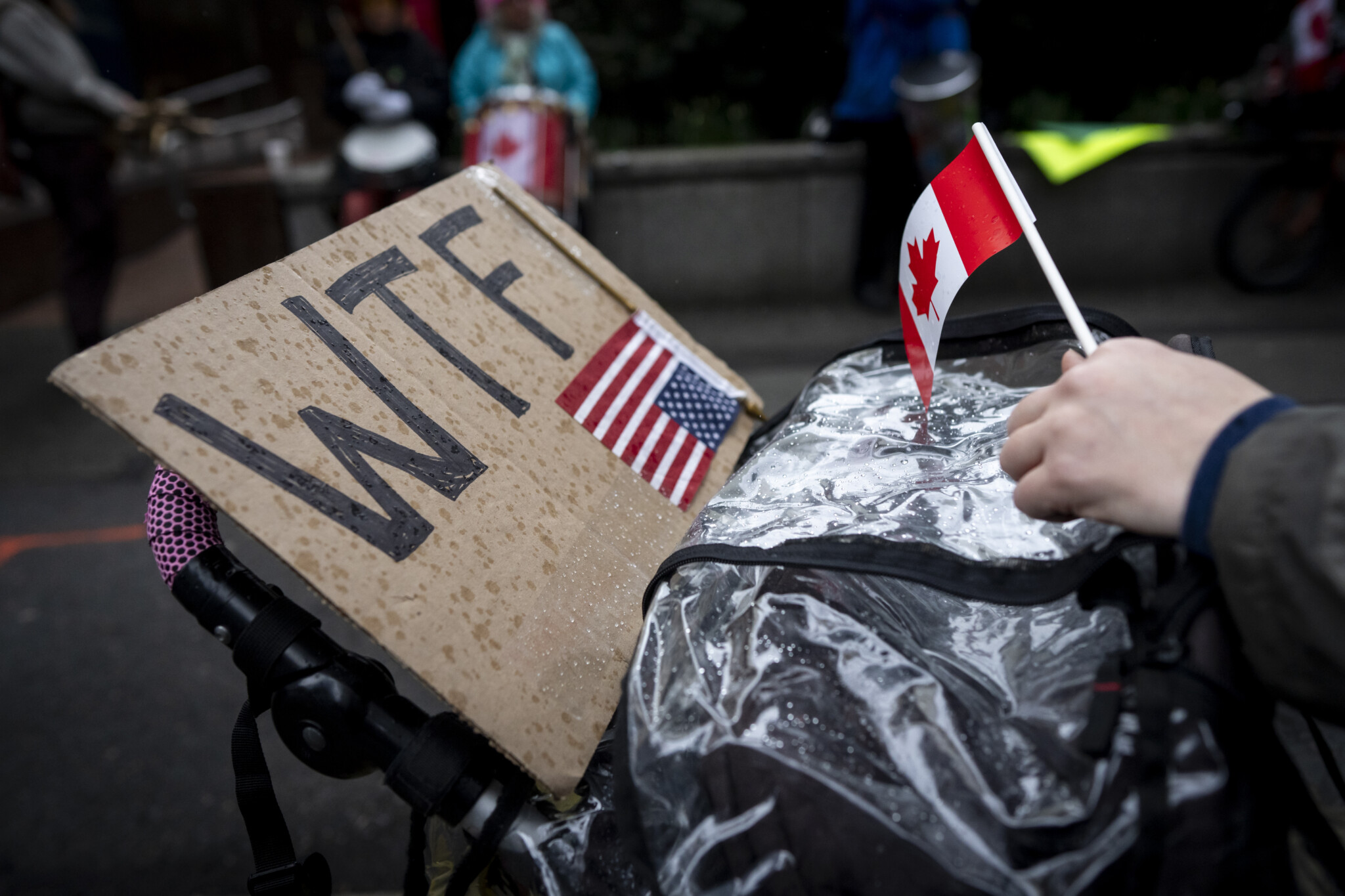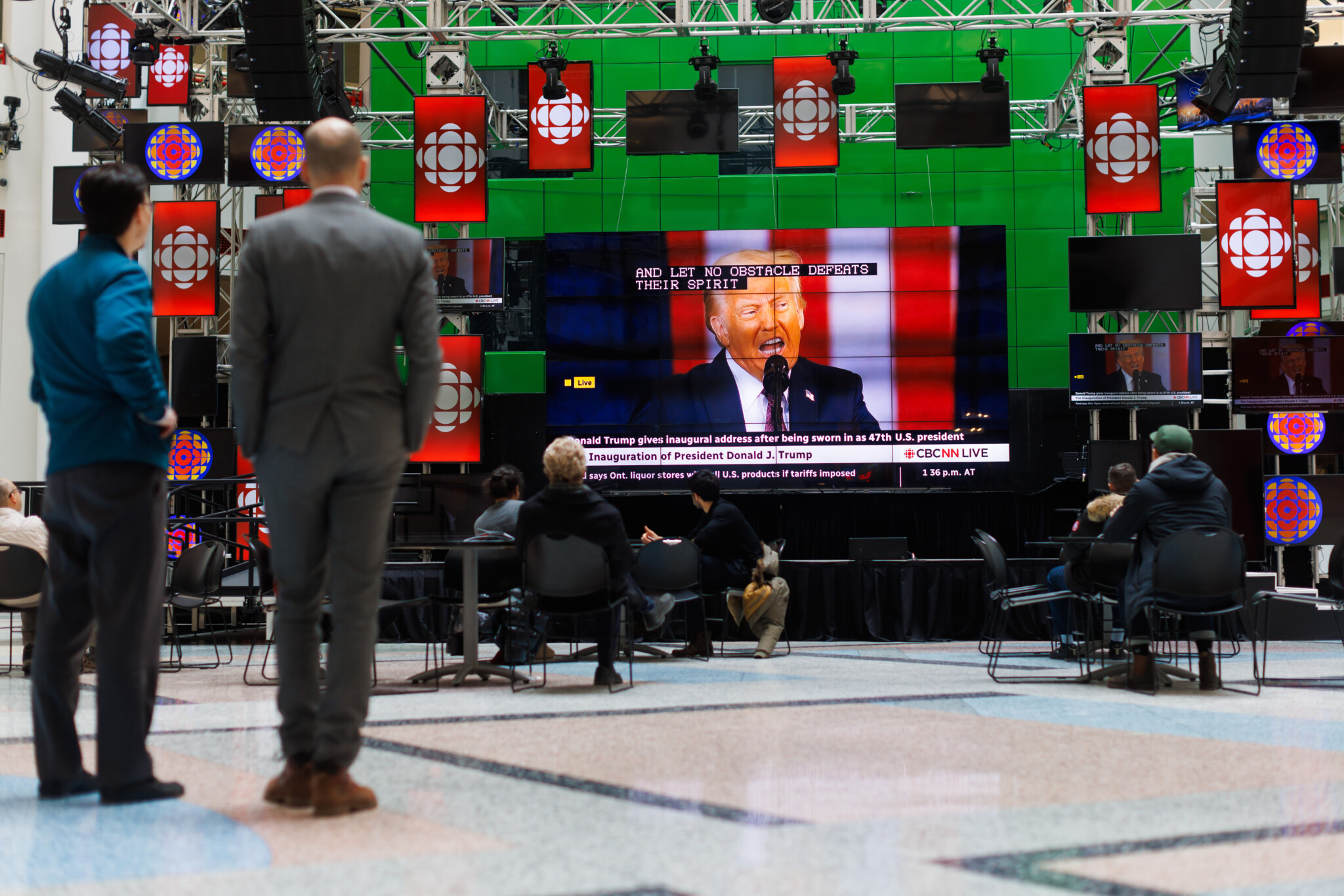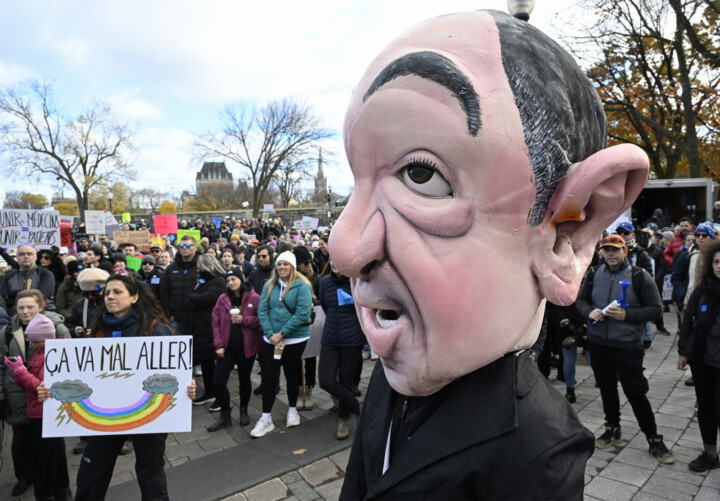Canadians love their myths. They keep us cozy, warm, and, when we need it, comfortably smug.
There’s a lot of material here, but today we’ll deal with the media-fuelled fantasy that Canada is viewed by Americans as a country they prefer.
Yes, it was true that, as early as November 7 last year, Quebec Premier François Legault and others were warning that Canada had to brace for an influx of migrants that would most certainly be fleeing the U.S. due to the election of Donald Trump as president. It was also true that Reuters, the next day, was reporting that Canadian police were “bracing” for the same. Even The Guardian weighed in. Everyone was all over this story. We were all “bracing.”
And it was true, as the CBC reported in January, that “refugee advocates, federal government departments and immigration lawyers” were again “bracing” for more asylum claimants.
It was impossible to consume Canadian news and commentary in the days, weeks and months following Trump’s most recent election victory and not be of the belief that, at the very least, hundreds of thousands of people living in the U.S. were about to be lined up at the border, begging to be granted entry into Canada, the gentle, polite and welcoming place it believes it is.
The problem is that most of the news agencies involved never followed up on the dire predictions made by the people they found to direly predict what their assignment editors believed was direly predictable. So, given nothing impresses like a first impression, most Canadians are probably still “bracing” for a flood of Trump refugees even if, as it turns out, there isn’t one. The old practice of an editor writing a calendar note into a future date that said “time for a follow-up on ‘Trumpugees?’” appears to have been abandoned.
If that is the case, it is a troubling development, as journalism demands not only that platforms accurately portray what people say, assume, and predict, but also insists that they verify that what was said, assumed, and predicted turns out to be true. To do otherwise is to spread misinformation by omission.
Lucky for us, a couple of reporters did check to see if any of those “bracing” for swarms of fleeing migrants or even a surge in regular U.S. immigration were on to something.
Blacklock’s Reporter, a reliable subscription-based independent outlet with a reputation for covering the machinations of government, not just Parliamentary politics, discovered, by checking, that:
Border agents counted a total 12,185 refugee claimants in the period from January to April compared to 24,445 in the same period last year, a 50 percent decline. RCMP over the same period intercepted 544 illegal immigrants compared to 603 the previous year, a 10 percent decline. No reason was given.
So, all those “bracing” weren’t just wrong, they weren’t even close.
Feisty as Blacklock’s (which refuses to take government subsidies) is, its reach is limited compared to the CBC, CTV, the Globe and Mail, the Toronto Star, and others who had carried stories raising the alarm.

People gather outside of the U.S embassy in protest of President Trump and the 25% tariffs applied to Canadian goods in Vancouver B.C., on Tuesday, March 4, 2025. Ethan Cairns/The Canadian Press.
More recently, the National Post offered an alarming headline about a shocking increase in asylum claims at the St-Bernard-de-Lacolle border crossing. While it did report that between January and July, “there have been 19,730 asylum applications processed in Canada,” compared with 39,085 at this time last year, the spike at St-Bernard was the lede. Why top with the larger truth when you can maintain a myth?
It remains highly likely that most Canadians believe people in the U.S. are eyeing our country with envy, just as they thought they did in 2016, only to discover, according to another non-legacy source, The Conversation, that between January and March of 2017, the number of American applications for permanent residency in Canada rose by only 66 to 1,882.
It’s not that the facts about immigration versus emigration don’t get told, but the profile given the “Americans are coming” angle—the CBC’s excitement about a Yale professor moving to Toronto takes the cake—far exceeds the portrayal dedicated to the reality that a lot more Canadians want to be Americans than vice versa. In 2023, a mere 10,600 of 340 million Americans immigrated to Canada, while 18,600 out of 40 million Canadians emigrated south.
On the face of it, that’s a pretty serious brain drain that indicates that the kinder, gentler, “ha-ha-we’ve-got-health care” image of Canada presented to us is, to say the least, a figment of our misinformed imagination. Because, as reported last year by the CBC, in 2022, 126,340 Canadians moved to the U.S., a 70 percent increase from over a decade ago.
As for this year, rather than Canada facing a flood of migrants, Statistics Canada found that in the first three months of 2025, 27,086 citizens and permanent residents emigrated from Canada, a 3 percent increase from the previous year and the highest first-quarter jump since 2017. As for non-permanent residents, 209,400 departed in the first quarter of 2025, a 55 percent increase over the previous year.
You’d think that would be a story worth leading a national newscast or flashing across a front page. But, as a crusty old editor of mine used to muse, “never let the facts get in the way of a good story.”










